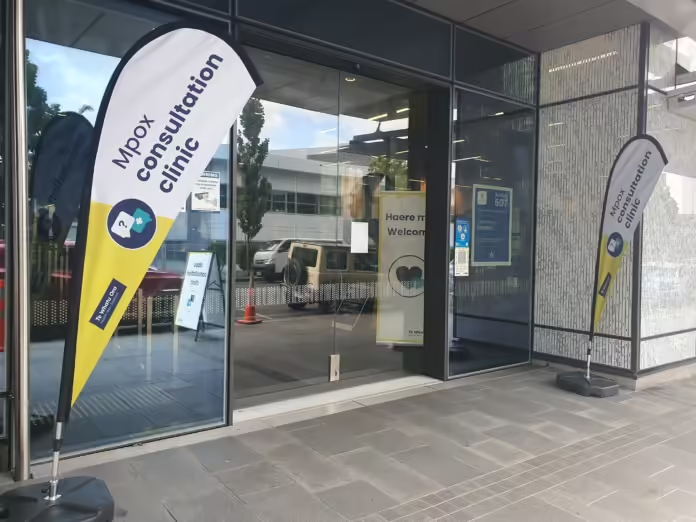Public Health is alerting residents and health care providers about a concerning increase in mpox cases, with 10 new cases reported in Los Angeles County in the past two weeks up from an average of less than two cases per week during the preceding several weeks.
Mpox (previously referred to as Monkeypox) is mainly spread through close contact with body fluids, sores, shared bedding or clothing or respiratory droplets (kissing, coughing, sneezing). Symptoms include rash or unusual sores that look like pimples or blisters on the face, body and genitals, fever, chills, headache, muscle aches or swelling of lymph nodes. Early detection, testing and vaccination are vital to controlling the spread of this disease and protecting the health of Los Angeles County residents.
Given the recent increase in cases, Public Health recommends the following actions:
Testing: Anyone who develops symptoms consistent with mpox, such as rash, fever or swollen lymph nodes should seek medical attention and get tested. Health care providers should be aware of the possibility of mpox and promptly report suspected cases to Public Health for appropriate testing and interventions.
Prevention: Vaccination is an important tool in preventing the spread of mpox. Jynneos is a two-dose vaccine developed to protect against mpox, and getting both doses provides the best protection against mpox. The vaccine is available to anyone, and individuals who identify with any of the following subgroups are highly encouraged to get vaccinated:
- Any man or transgender person who has sex with men or transgender persons
- Persons of any gender or sexual orientation who have sex or intimate physical contact with others in association with a large public event or engage in commercial and/or transactional sex
- Persons living with HIV, especially persons with uncontrolled or advanced HIV disease
- Sexual partners of people in any of the above groups
People in high-risk groups are urged to get fully vaccinated with two doses for the best protection. Second doses can be given no matter how long it’s been since the first dose. Residents can choose to receive the mpox vaccine subcutaneously (in the upper arm) or intradermally (under the skin on their arm or back). Vaccine boosters are not recommended at this time.
Public Health is collaborating with health care providers, community organizations and other stakeholders to address the mpox resurgence. Enhanced surveillance, contact tracing and outbreak investigations are underway to identify potential sources of the infection and prevent further transmission. Public Health’s mobile vaccination units are providing free vaccination at numerous Pride events this season, Public Health’s sexual health clinics found at http://publichealth.lacounty.gov/chs/sexualhealthclinics/ and other walk-up vaccine clinics can be found at https://myturn.ca.gov/.
Details:1-833-540-0473; ph.lacounty.gov/mpox



